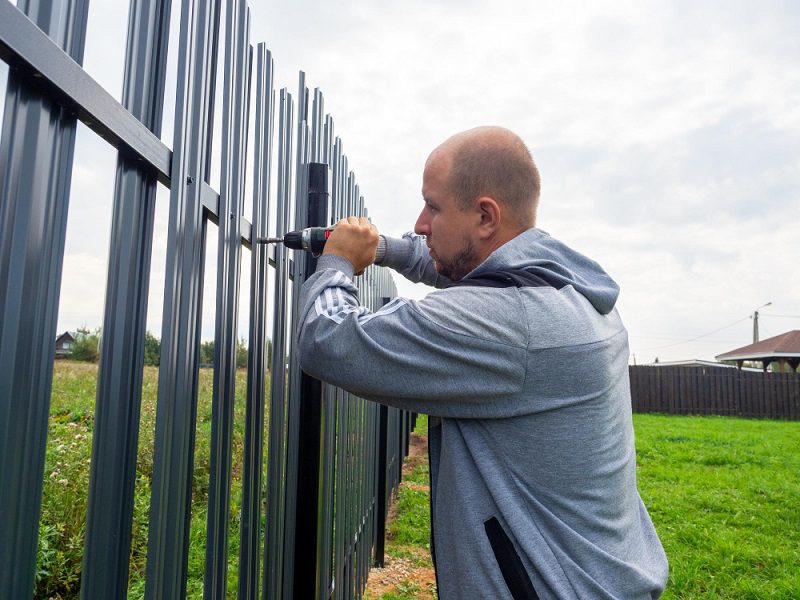Residential Fencing Made Easy: Steel Pipe Solutions Revealed

Exploring the world of residential fencing can be both exciting and daunting. As a homeowner, you want to ensure your property is secure and visually appealing. However, before you dive into this endeavor, it’s crucial to grasp the fundamental aspects that govern residential fencing. In this comprehensive guide, we will simplify the complexities and provide you with an easy-to-follow roadmap. We’ll cover everything from acquiring the necessary permits to understanding height and distance regulations, all while highlighting the advantages of using steel pipe for fencing.
The Nuts and Bolts of Acquiring Fencing Permits
When it comes to residential fencing, the first crucial step is to acquaint yourself with the permitting rules. While every jurisdiction has its requirements, some common factors require attention. Typically, homeowners must apply for a permit, submit a detailed site plan and get approval from local authorities before proceeding with any fencing project. Make sure to follow all guidelines meticulously to avoid legal repercussions later on.
Understanding Fence Height Guidelines
Another pivotal point is the height regulations. The allowed height usually varies depending on the zone where you live, but most residential areas permit fences to be about 4 to 6 feet tall. Before making decisions, check your local zoning laws to ascertain the maximum height allowed. Opting for the best steel pipe for fencing can provide much-needed durability while adhering to these height requirements.
Navigating Distance Regulations
Distance rules can be somewhat trickier. The proximity of the fence to your property line and public utilities can be a point of concern. Regulations often mandate a specific distance, usually a few inches to a foot from the property line, to avoid encroachments or disputes with neighbors. Steel pipe for fencing is often recommended due to its low maintenance needs and versatile installation options.
A Closer Look at Easements
An easement is a legal right that allows someone else to use a portion of your land for a specific purpose, such as utility lines or public pathways. Before you erect any fence, ensure you identify any easements on your property to avoid breaching these legal provisions. Using steel pipe allows you to design a robust structure without compromising on easements or utility access points.
Why Steel Pipe for Fencing?
When contemplating the myriad of fencing options, steel pipe stands out as a clear winner. Here are some compelling reasons why:
- Durability: Steel pipes offer high resistance to elements, making them last longer than other materials.
- Ease of Installation: Steel pipes, known for their lightweight yet robust nature, can be installed with relative ease
- Aesthetic Appeal: Modern finishes make steel pipes blend effortlessly with various architectural styles.
- Cost-Effectiveness: Over the long term, the low maintenance needs of steel pipes make them a cost-effective choice.
Steel pipe for fencing offers the perfect blend of utility and aesthetics, making it the go-to choice for many homeowners looking to fortify their property.
The Environmental Impact
While planning a fence, the sustainability factor often gets sidelined. However, in today’s environmentally conscious world, it’s crucial to consider the ecological footprint of your choices. Steel pipe is a preferred option as it is often made from recycled material and recyclable at the end of its life. Its durability also means less frequent replacements, contributing to less waste over time.
Long-term Care for Your Steel Pipe Fence
While the right steel pipe for fencing is robust and durable, no material is entirely maintenance-free. For long-lasting results, it’s advisable to inspect your fence regularly for any signs of wear, such as rust spots or loose fasteners. Cleaning the fence with a mild soap solution can add years to its life. In colder climates, be vigilant about snow or ice accumulation, as it can exert undue pressure on the fence. By adhering to a consistent maintenance routine, your steel pipe can serve you well for years.
Bison Pipe: Where Strength Meets Style in Fencing Excellence!
Are you ready to fortify your property with the unmatched durability of steel pipe for fencing? Bison Pipe is your trusted partner in achieving the security and aesthetic appeal you desire. Our premium steel pipes offer long-lasting reliability, ensuring your investment stands the test of time. Your dream fence is just a click away!

